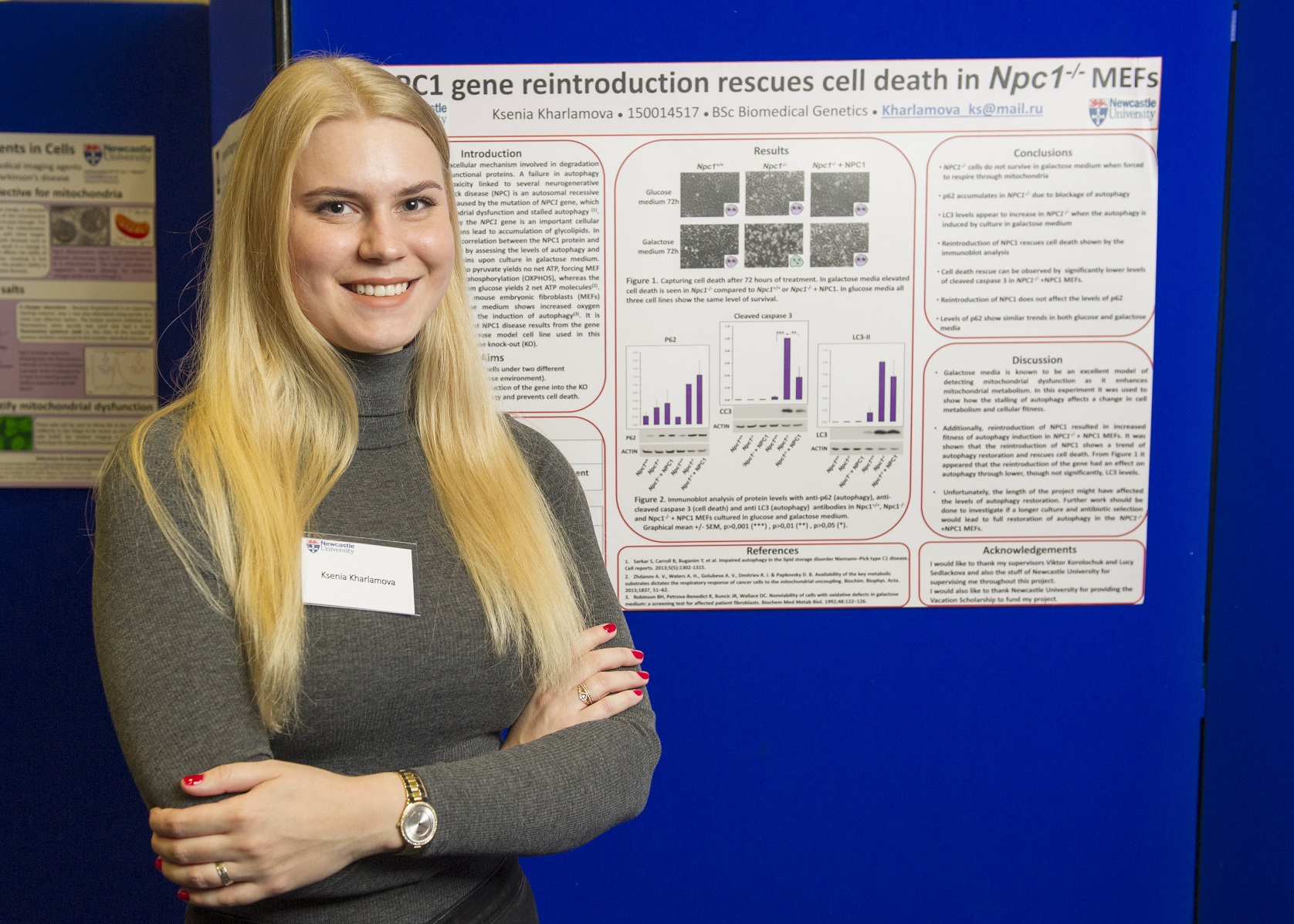2017 Participants
 Ksenia Kharlamova
Ksenia Kharlamova
Cellular senescence is the state of cell cycle arrest, believed to be an important mechanism acting as a guard against the onset of cancer. Autophagy is the intracellular pathway involved in degradation of damaged and dysfunctional proteins. A failure in autophagy results in cellular toxicity, neurodegeneration and disease due to the accumulation of proteins and lipids in lysosomes. Niemann-Pick disease (NPC), a neurodegenerative autosomal lipid storage disorder, caused by a mutation to the NPC1 gene, and characteristically the condition is associated with mitochondrial dysfunction and delayed autophagy.
Using knockout NPC1-/- MEF mouse models, the correlation between NPC1 protein and cellular death was investigated. In this project various cell lines of differing NPC1 gene mutation states were compared to one another when placed in glucose and galactose medium. It was established that in galactose medium NPC1-/- MEF cells were not rescued as they were forced to use mitochondrial respiration, resulting in the accumulation of p62 and LC3. However, glucose media had no effect on any of the cell lines.
Funding source: Newcastle University
Supervisor: Dr Viktor Korolchuk
